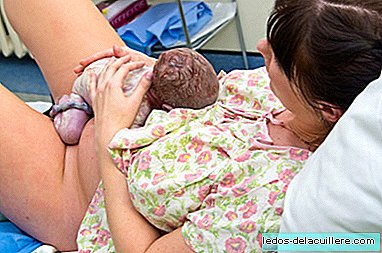
According to WHO, 830 women die every day during pregnancy and childbirth for causes that could be avoided. One of the main complications, which occurred in 75 percent of cases, are severe bleeding after delivery, which can end up causing death if not treated quickly.
Until then, the injection of oxytocin was the only effective remedy to prevent this type of bleeding, but last Wednesday the WHO announced a new formula of a medicine capable of withstanding better temperature conditions than oxytocin, so it could save the lives of thousands of women in the poorest countries.
A medicine that supports up to 30 degrees of temperature
The drug, called "carbetocin at stable temperature" is a new formulation of the drug "carbetocin", capable of supporting up to 30 degrees of temperature and 75 percent relative humidity for three years without spoiling, so it is an important lifesaver for women who give birth in the most disadvantaged countries.
So far, oxytocin had been used to stop postpartum hemorrhages, but according to the WHO's maternal health coordinator, the medical community had been looking for a medicine that was not susceptible to heat for years, and that remained stable and effective at high temperatures. .
"At high temperatures oxytocin degrades, it is not that it has harmful effects, but that it simply is not effective. We have seen places where the necessary dose is inoculated three times as a method to balance the lack of efficacy "- have explained from the WHO.
And finally they seem to have found the perfect candidate, since carbetocin and oxytocin have very similar effects, with the difference that this new formulation is not susceptible to changing temperatures.
Thus, "stable temperature carbetocin" could be used safely in poor countries, whose access to refrigerators is very limited and sometimes even non-existent.
For the moment, This new drug can only be used in clinical trials, but the results obtained in a macro trial of 30,000 women from Argentina, Egypt, India, Kenya, Nigeria, United Kingdom, Singapore, South Africa, Thailand and Uganda, have been really scary.
Therefore, it is expected that it may soon be authorized, regulated and implemented in a massive way in countries with high rates of maternal mortality, where It will be used preventively, and not as a treatment, since it has been shown that inoculated in the first minutes after delivery, the chances of having a hemorrhage are reduced by 40 to 50 percent.
Reduce maternal mortality
Since 1990 several sub-Saharan countries have halved their maternal mortality, and in other regions, such as Asia and North Africa, progress has been even greater.
But the number of deaths in childbirth due to preventable causes remains high, so that in the 2015 General Assembly of the United Nations the "Global Strategy for the Health of Women, Children and Adolescents 2016-2030" was presented, which has among its multiple goals to end maternal deaths due to complications derived from pregnancy and childbirth.
As we said at the beginning, the main complications, causing 75 percent of maternal deaths, are:
severe bleeding (mostly after delivery);
infections (usually after delivery);
gestational hypertension (preeclampsia and eclampsia);
birth complications;
Dangerous abortions
The remaining percentage of maternal death is associated with diseases such as malaria or HIV infection in pregnancy or caused by them.
Most maternal deaths during childbirth could be avoided If they were attended by qualified professionals and the mother received preventive treatment to avoid complications such as bleeding.
There is no doubt that the news of this new drug represents an important advance to curb the death rates in women who have just given birth, but there is still a way to go.Photos | iStock, Pixabay












